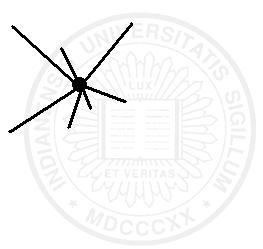|
Divergent
thinking
Guilford’s
Alternative Uses Task
Wallas
and Kogan
Torrance Test of Creative
Thinking
Convergent
thinking
Insight Problems
Remotes Associations
Task
Artistic
assessments
Barron-Welsh
Art Scale
Self assessment
Khatena-Torrance
Creative Perception Inventory
How
Do You Think
Things
Done on Your Own
The
Creativity Behavior Inventory
RIBS
Creative
Attitude Survey
Statement
of Past Activities
NEO-PI-R
Gough Personality Scale
Other
Assessment
Creativity
Assessment Packet
Preschool
and Kindergarten Interests Descriptors
Scales
for Rating the Behavioral Characteristics of Superior
Students |
| |
Creativity
Test:
Torrance Tests of Creative Thinking (1962)
(For more information, contact
Gayle Dow, Indiana
University)
|
The Figural TTCT: Thinking Creatively with Pictures is appropriate at all levels, kindergarten through adult. It uses three picture-based exercises to assess five mental characteristics:
| · fluency |
|
· resistance to premature closure |
| · elaboration |
|
· abstractness of titles |
| · originality |
Streamlined scoring provides standardized scores for the mental characteristics listed above as well as for the following creative strengths:
| · emotional expressiveness | |
· internal visualization |
| · storytelling articulateness | |
· extending or breaking boundaries |
| · movement or action | |
· humor |
| · expressiveness of titles | |
· richness of imagery |
| · synthesis of incomplete figures | |
· colorfulness of imagery |
| · synthesis of lines or circles | |
· fantasy |
| · unusal visualization |
Appropriate for first graders through adults, the Verbal TTCT: Thinking Creatively with Words uses six word-based exercises to assess three mental characteristics:
| · fluency | | · flexibility | | · originality |
These exercises provide opportunities to ask questions, to improve products, and to "just suppose."
What might this be?

responses:
a
smooshed spider
a star
a set of mini blinds caught in a
tornado
To score the TTCT you will need
"Manual for Scoring and Interpreting Results", obtainable from
the
Torrance Center, or from
Scholastic Testing Service. The
manual includes national norms, standard scores, and national
percentiles for each age level.
To administer the Torrance you should
have experience administrating tests (e.g., you are a
teacher, counselor, school staff, or work for an accredited
school, college, or governmental agency, or are conducting
research as a graduate student working under a supervising
faculty member)
To order
http://www.ststesting.com/2005giftttct.html
The
Torrance Center offers training workshops
Guilford’s Alternative Uses Task (1967)
Torrance Tests of Creative Thinking (TTCT) (1974)
Back to Creativity Test: Overview page.
Back to
Creative Thinking Handout Index
|
| | |
|
|
|



